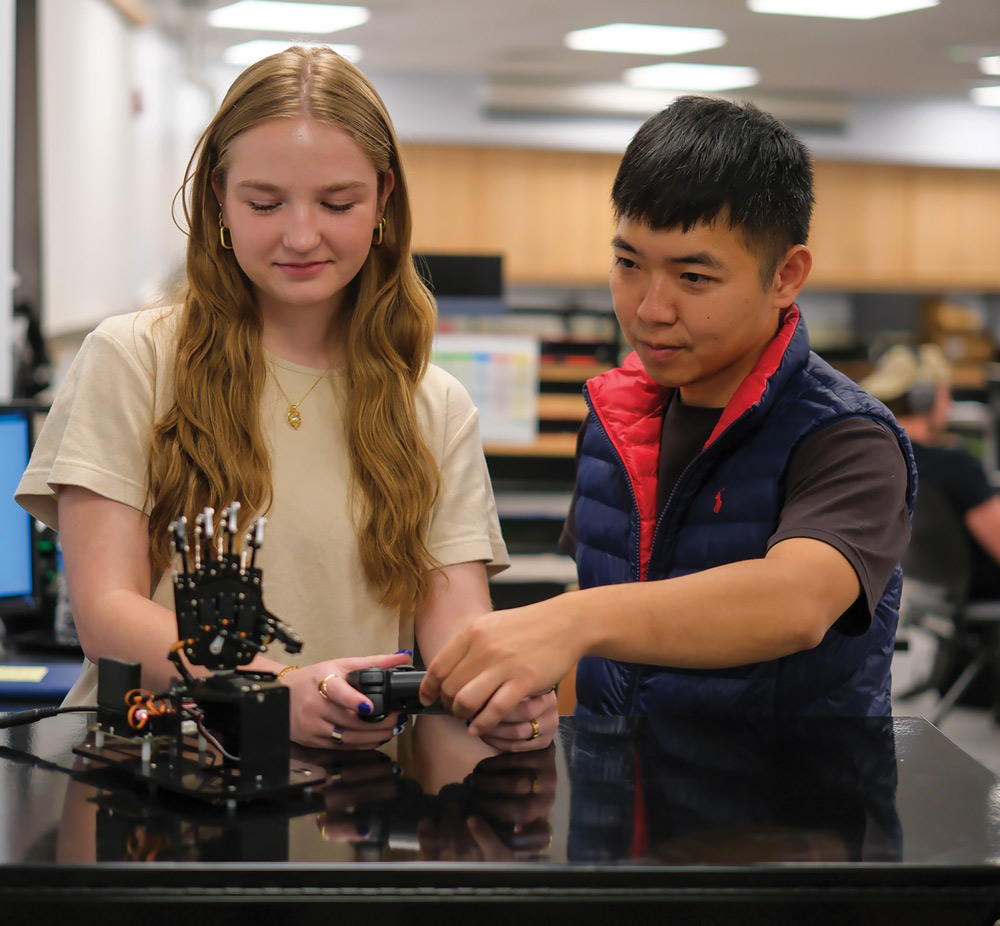


Engineering Research
Janey Parks, a sophomore mechanical engineering major from New Brighton, started working as a research assistant for Jheng-Wun Su in SRU’s Engineering Department in the summer after her first year through SRU’s Summer Collaborative Research Experience (SCoRE) grant program. Parks was paid to work four days a week on a project to find ways to improve upon the wearable sensors that respond to touch and capture motion. She learned concepts and used lab equipment, including 3-D printers and a laser engraver, even before they would normally be introduced in classes.
“Research opportunities like this are very beneficial for me because it has helped me become a well-rounded student and to think more critically about possible errors that could arise,” Parks said. “This will be a helpful strength as an engineer in the future.”
SRU has six engineering laboratories including three “flex” labs where students get hands-on experiences in the same spaces where class lectures and group discussions occur. This is part of a more cost-effective and innovative approach, where modular equipment is easily reconfigured to meet teaching needs for experiments, demonstrations, testing, analysis and many other opportunities for applied learning.
Parks performed summer research in SRU’s Advanced Manufacturing Lab in the Vincent Science Center in the same space where she started working in the fall semester on a separate project using several of the 20 3D printers in the lab.
She explored the potential of using of biodegradable materials, such as used coffee grounds, as filament for the 3D printers in what could be a sustainable technique used in the additive manufacturing industry. This included testing various parameters such as temperature, flow rate and nozzle diameter.
“Research activities like this, instead of relying only on classroom lectures, can make any student grow exponentially,” Parks said. “In my case, I am trying new things and growing my knowledge on a certain subject every single day. It gives students that extra push to grow their knowledge and understand something more deeply.”
And the application of the knowledge in the lab is easier to embrace than theories.
“Working so close to the department by conducting research makes me feel much less intimidated by the engineering field,” Parks added.